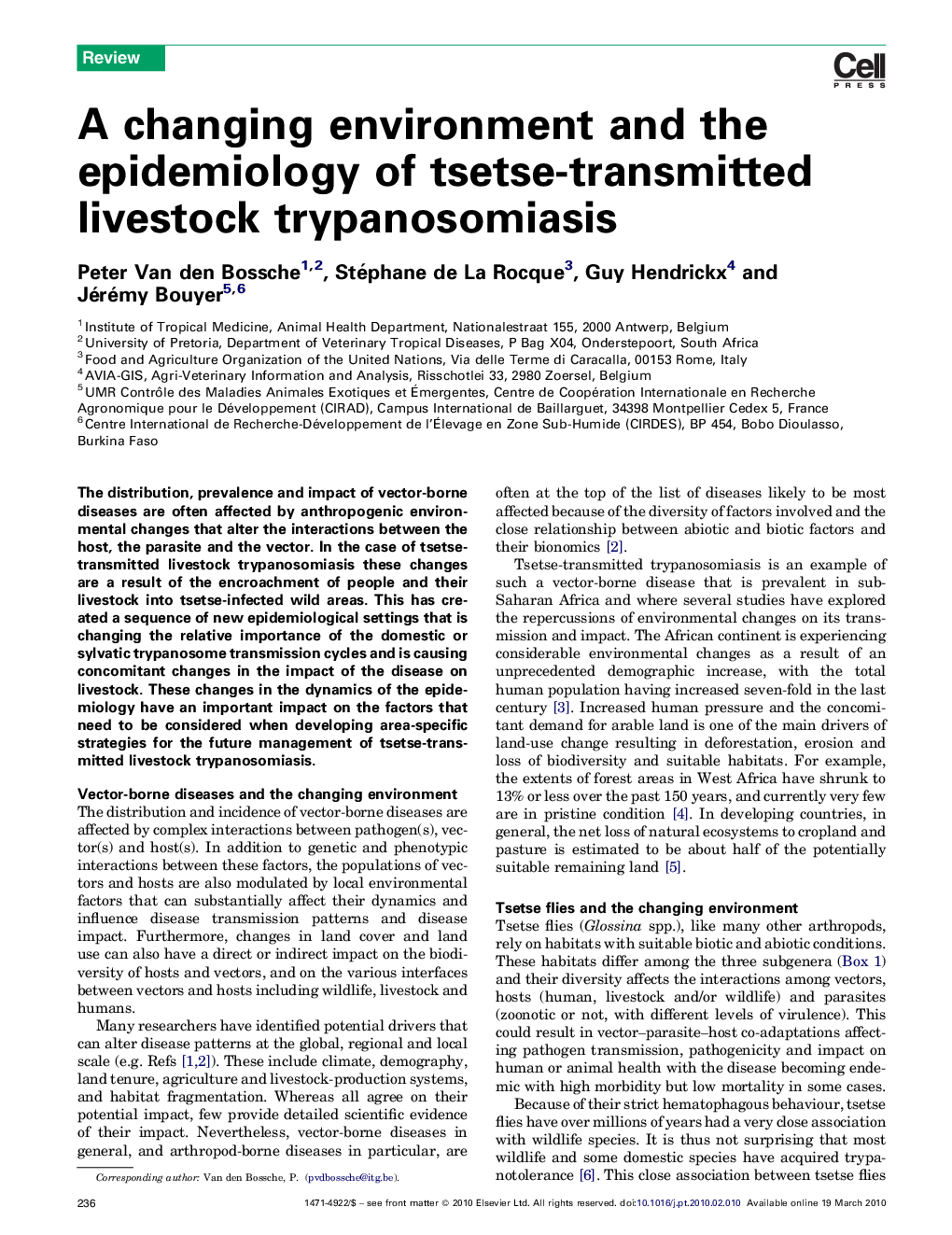| Article ID | Journal | Published Year | Pages | File Type |
|---|---|---|---|---|
| 3423535 | Trends in Parasitology | 2010 | 8 Pages |
The distribution, prevalence and impact of vector-borne diseases are often affected by anthropogenic environmental changes that alter the interactions between the host, the parasite and the vector. In the case of tsetse-transmitted livestock trypanosomiasis these changes are a result of the encroachment of people and their livestock into tsetse-infected wild areas. This has created a sequence of new epidemiological settings that is changing the relative importance of the domestic or sylvatic trypanosome transmission cycles and is causing concomitant changes in the impact of the disease on livestock. These changes in the dynamics of the epidemiology have an important impact on the factors that need to be considered when developing area-specific strategies for the future management of tsetse-transmitted livestock trypanosomiasis.
